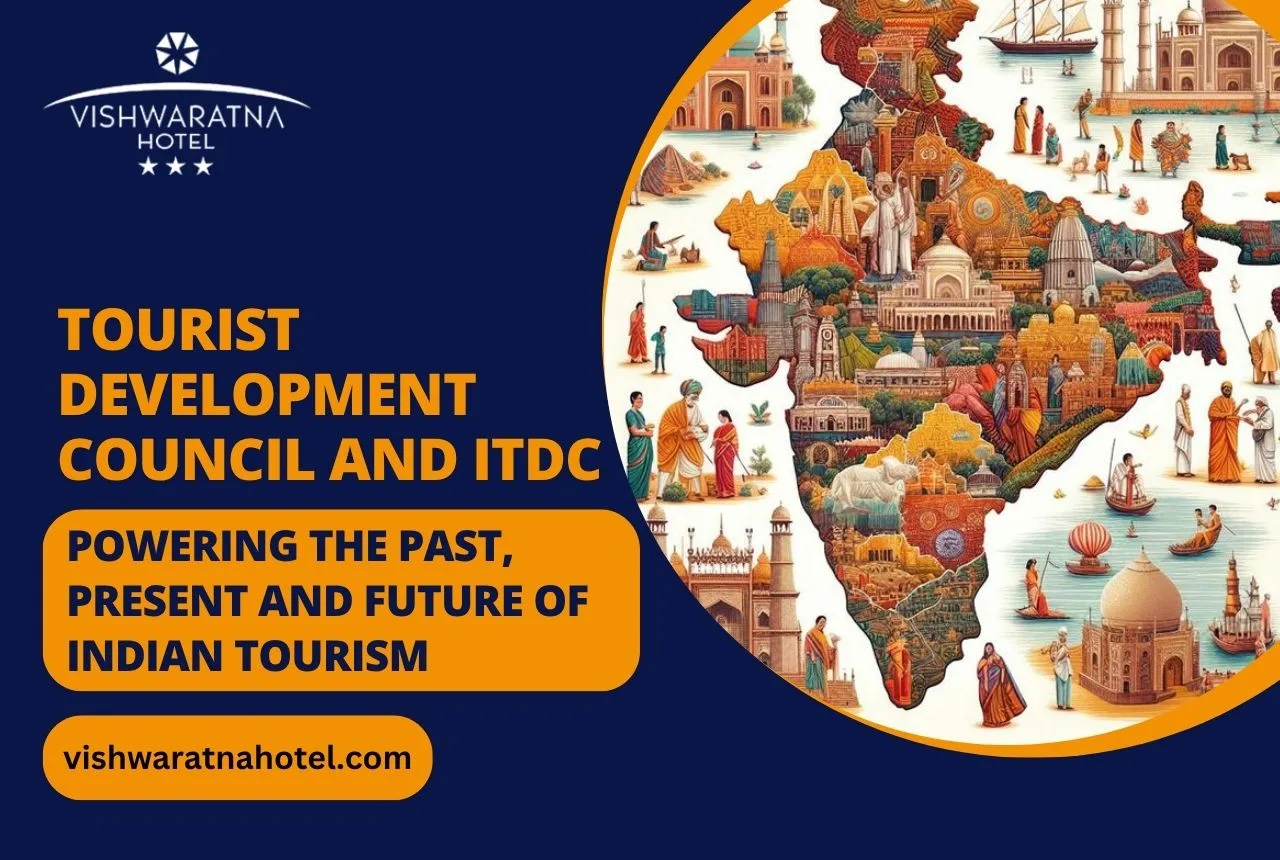The Tourist Development Council, through ITDC, plays a vital role in the tourism development of India by driving government hotel projects and key tourism initiatives.
India’s cultural depth, geographic variety, and rich historical legacy, supported by the efforts of the Tourist Development Council, have always made it a dream destination for global travelers. Yet, behind this thriving tourism sector lies the dedicated work of organizations like the India Tourism Development Corporation (ITDC), a key initiative under the Tourist Development Council that has played a foundational role in shaping the tourism development of India.
As India accelerates toward becoming a global tourism hotspot, it is worth exploring the journey of ITDC from its early foundations to its current contributions and its plans for the future. With a focus on government hotel networks, modern tourism developments, and sustainability goals, ITDC continues to anchor India’s travel ecosystem.
The Origins of ITDC and the Role of the Tourist Development Council
The India Tourism Development Corporation was established in 1966 as a government undertaking, operating under the Ministry of Tourism. It was envisioned as an arm of the tourist development council, with the mission to systematically promote tourism infrastructure across India. At the time, India lacked a coordinated tourism framework. There was a pressing need for good-quality accommodations, reliable travel services, and a cohesive tourism policy that could encourage both domestic and international visitors.
The establishment of tourism hotels under ITDC became a game-changer. These were the first state-run government hotels catering to middle- and upper-class travelers. They were strategically located in capital cities, pilgrimage hubs, and major tourist destinations. The Ashok Group of Hotels became synonymous with trusted state hospitality and played a vital role in showcasing Indian hospitality to foreign guests, diplomats, and tourists.
The tourist development council continued to offer policy guidance and strategic planning, enabling ITDC to lead the early phases of tourism development of India. This collaboration led to a robust infrastructure ecosystem that included not only tourism hotels but also restaurants, transportation services, shopping outlets, and even sound-and-light shows at historical monuments.
Tourism Developments: ITDC’s Contributions Over the Years
For decades, ITDC has served as a backbone for India’s tourism sector. In addition to managing government hotels, ITDC offered comprehensive tourism services. These included:
- Ashok Travels & Tours – offering travel and ticketing services.
- Ashok Events – managing national and international-level conferences, cultural shows, and official events.
- Duty-Free Shops (DFS) – at international airports.
- Hospitality Training Institutes – to skill youth for employment in the hospitality industry.

These diversified operations contributed to broader tourism developments, helping India emerge as a competitive global tourism destination.
Many of ITDC’s tourism hotels were located in underserved areas, ensuring balanced regional growth and job creation. These properties didn’t just offer rooms—they promoted regional cuisine, traditional décor, and cultural performances, becoming microcosms of Indian diversity. They were also the first point of cultural contact for many foreign travelers visiting India.
Transformation and Privatization in the Present Era
In recent years, ITDC has undergone a major transformation. With the government’s renewed emphasis on efficiency, transparency, and competitiveness, many government hotels have been leased, disinvested, or managed through Public-Private Partnerships (PPPs). However, flagship properties like The Ashok Hotel in New Delhi continue to remain under ITDC’s management and remain iconic destinations.
Despite the strategic disinvestment, ITDC continues to be deeply involved in the tourism development of India. Its consultancy services are now sought after by state governments, private investors, and even international tourism boards. From architectural planning for resorts to feasibility studies for tourism hotels, ITDC’s expertise remains highly relevant in modern tourism developments.
The organization has also embraced digital transformation. Online booking systems, mobile apps, virtual tourism experiences, and digital campaigns have been introduced to cater to the modern traveler. These efforts complement the broader digital initiatives of the tourist development council, which aims to position India as a digitally-enabled tourism hub.
Future Outlook: Sustainable and Inclusive Tourism Development of India
The future of ITDC and the broader tourism development of India is being shaped by three major forces: sustainability, regional inclusivity, and global competitiveness.
1. Sustainable Tourism Developments
Environmental conservation is now at the heart of tourism strategy. ITDC is working to align its operations with India’s sustainability goals. Plans include green building certifications for tourism hotels, waste-reduction programs, water recycling, and the promotion of eco-tourism circuits.
The tourist development council has identified eco-tourism as a key growth area, and ITDC is assisting in developing low-impact travel infrastructure in forests, hills, and coastal zones.
2. Expanding Government Hotel Infrastructure in Emerging Regions
While metros and popular destinations already boast excellent hospitality options, the tourism development of India now depends on developing tier-2 and tier-3 cities.
ITDC, under the guidance of the tourist development council, is working with state governments to set up or advise on government hotels in regions like the North East, Central India, and border towns. This not only ensures balanced development but also opens up new tourism circuits.
3. Global Promotion and International Partnerships
With India hosting global events like the G20 summit and expanding its visa-free policies for select countries, the international spotlight is brighter than ever. ITDC is actively collaborating with embassies, global travel agencies, and international hotel chains to offer seamless travel experiences.
Its tourism hotels are increasingly being positioned as venues for high-level meetings, conventions, and destination weddings.
ITDC’s Legacy in Shaping India’s Tourism Identity
What makes ITDC truly remarkable is its consistent ability to adapt and lead. Whether it was introducing India’s first chain of government hotels, offering complete tourism packages, or driving policy implementation alongside the tourist development council, ITDC has been instrumental in turning India’s vast tourism potential into reality.
It has not only supported hospitality but also nurtured cultural preservation, trained thousands of youth in hospitality services, and provided dignified accommodations for travelers of all kinds. Its network of tourism hotels played a vital role in creating trust around Indian tourism especially during the early decades when private infrastructure was limited.

Conclusion: A Future Built on Experience and Innovation
As India strides into the next phase of global tourism leadership, ITDC remains a symbol of how state-run enterprises can foster meaningful tourism developments when driven by a mix of heritage, innovation, and public service.
Backed by the tourist development council, and rooted in decades of hands-on experience in managing government hotels, ITDC’s roadmap is well-aligned with national goals. Whether it’s restoring heritage hotels, launching sustainable travel solutions, or supporting state initiatives, the corporation continues to be a catalyst for the tourism development of India.
With the right balance of tradition and technology, ITDC’s evolving journey is a testament to India’s vibrant, inclusive, and dynamic tourism narrative, one that continues to welcome the world with open arms.


